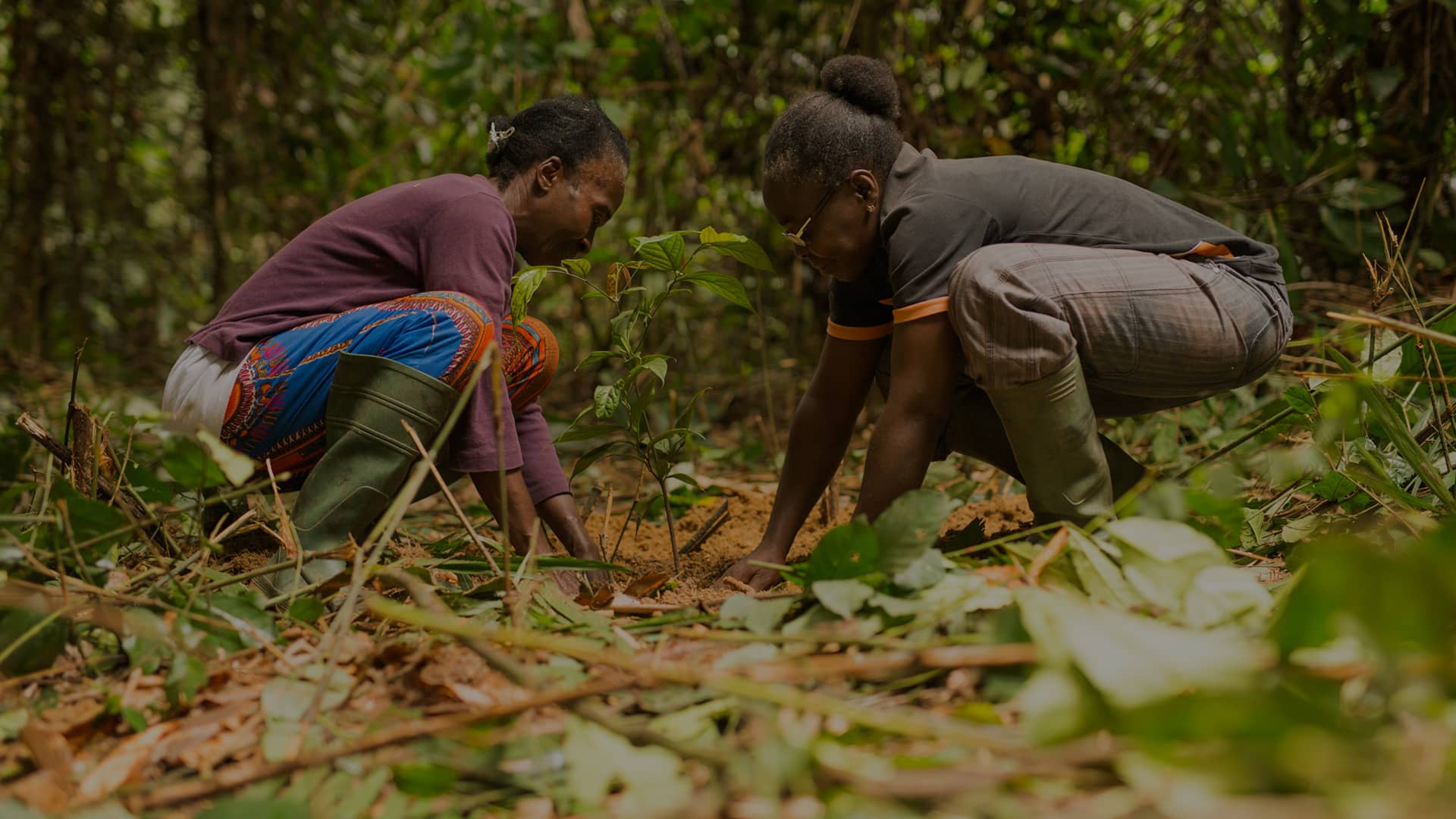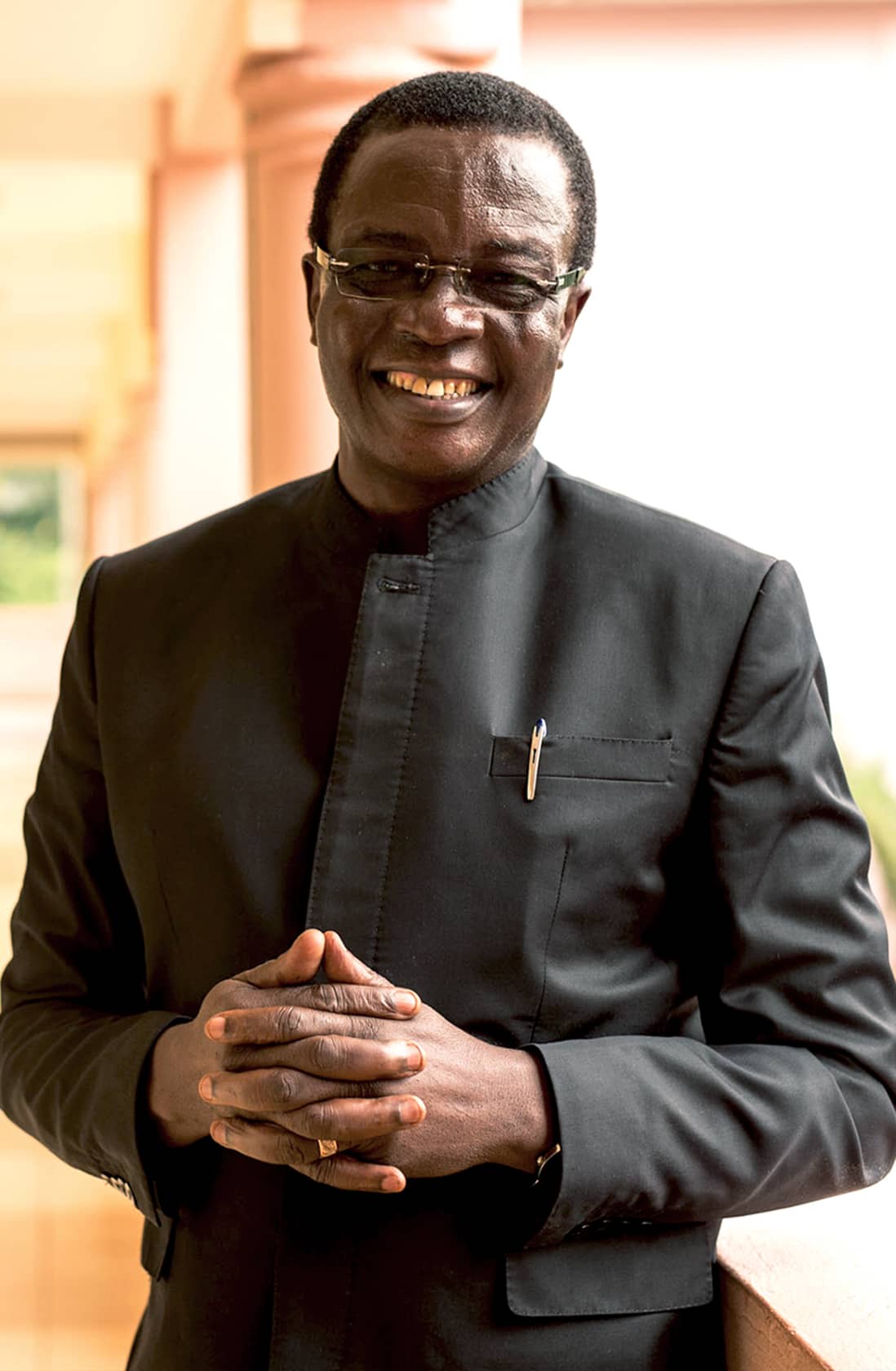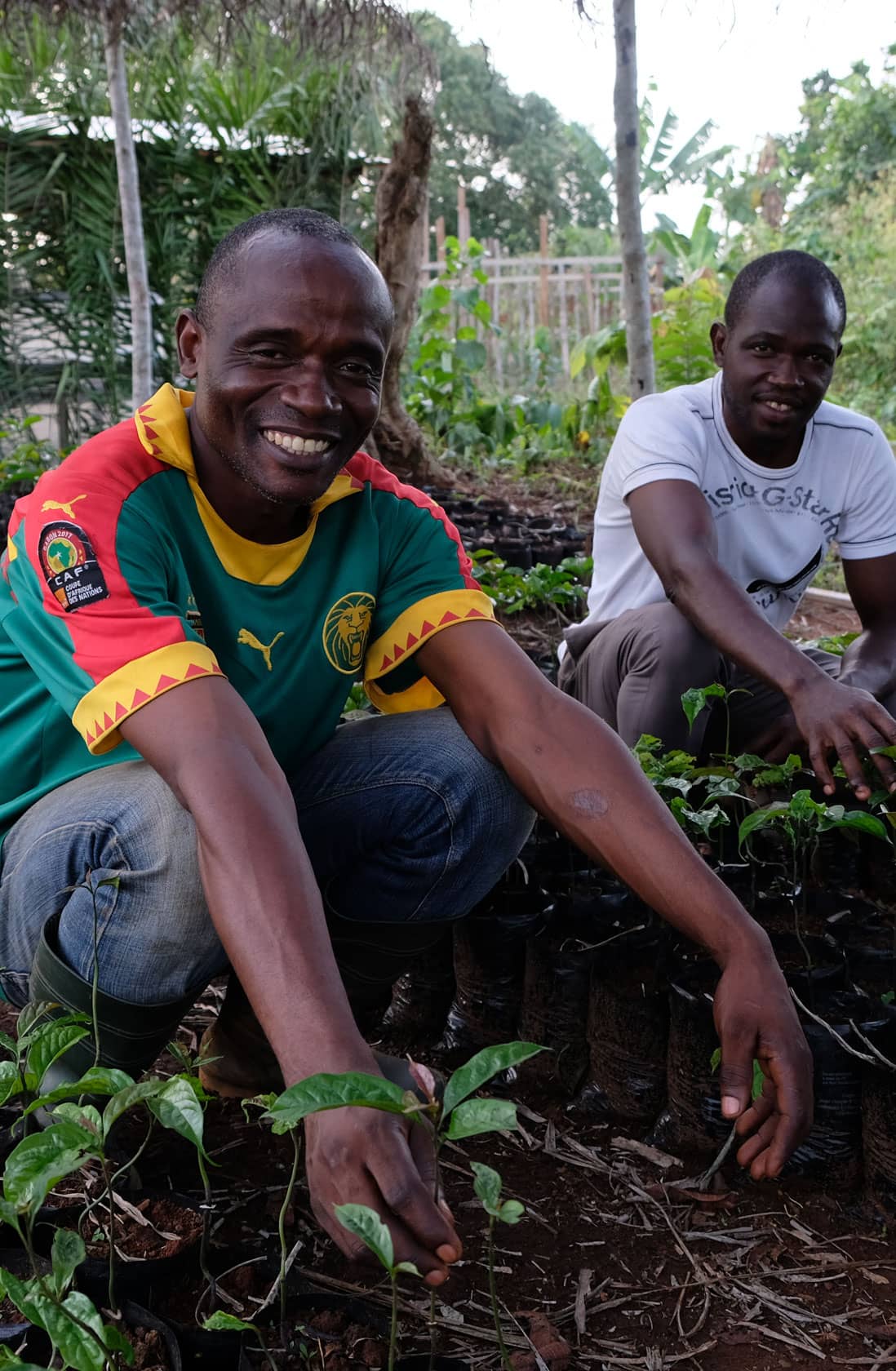Crowdsourcing the Replanting Effort
Video: What is Agroforestry?
Scott Paul explains the practice of agroforestry.
Meet Dr. Zac
A key figure in developing this community-based replanting program is Dr. Zac Tchoundjeu, a leading expert on agroforestry who has been working with forest-dependent communities in the Congo Basin for decades. Dr. Zac has devoted his career to the development of locally run agroforestry systems and the planting of high-value timber species intercropped with local fruit and medicinal trees.
Dr. Zac worked for many years at the World Agroforestry Centre, also known as the International Center for Research in Agricultural Forestry (ICRAF). While serving as the principal scientist and regional director for West and Central Africa at ICRAF, he was honored in 2012 with the prestigious National Geographic Society/Buffett Award for Leadership in African Conservation. The award recognized Dr. Zac’s “outstanding work and lifetime contribution to conservation in Cameroon.”
Video: Dr. Zac
Dr. Zac talks about developing an agroforestry program for communities.
How The Program Works
One of the traditional obstacles in planting tropical hardwoods is the fact that that they will not reach maturity and become economically valuable in the span of a typical human lifetime. So historically, convincing people to plant species such as ebony has been a challenge. But thanks to Dr. Zac’s years of work developing regionally appropriate agroforestry models across the Congo Basin, we have an approach that works. The key was to integrate the planting of ebony with other types of high-value plants and trees that would yield benefits in the shorter term.
Video: The Replanting Plan
A closer look at how Dr. Zac’s innovative agroforestry model benefits communities and promotes the planting of ebony trees.
The Program Takes Root
In 2017, Crelicam and the Congo Basin Institute launched a pilot program with its first two villages. Participants have been given ebony tree saplings and taught how to propagate more from cuttings. They will be paid over the first five years to care for the trees as the trees grow. Each planted tree is geo-referenced and entered into a silvicultural log book, thus giving communities ownership rights to the ebony trees under Cameroonian law. Because it takes an ebony tree 60 to 80 years to reach maturity, it is hoped that each tree planted will be an investment in the future livelihood of their grandchildren and beyond. In addition, participants were also given at no cost other native fruit and medicinal plants that should provide value within just a few years.
A Public-Private Partnership
The transformation of the Crelicam mill, together with the research and reforestation efforts of the ebony project, has not gone unnoticed. Senior delegations from the World Bank, The U.N. REDD+ program, the U.N. Food & Agriculture Organization, and the U.S. Forest Service International Programs have visited Crelicam, CBI, and partnering communities involved in replanting. As a direct result, Taylor Guitars was invited to the United Nations Climate Change Conference in Bonn, Germany, in November 2017 to sign a Public-Private Partnership agreement with the Cameroonian Ministry of Environment. The agreement will lead to a formal analysis of the ebony project to determine if it can be scaled up and extended across southern Cameroon.
Video: Public-Private Partnership
Scott Paul explains the concept of a Public-Private Partnership.
Stay informed about The Ebony Project. Subscribe now for email updates on the Ebony Project, guitar news and more from Taylor Guitars.
SIGN UP




